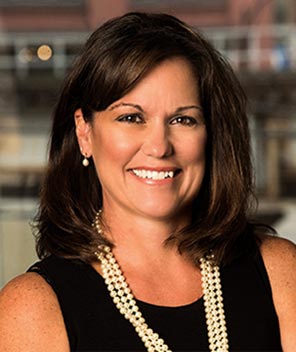Divorcing homeowners face complex financial decisions involving real estate and mortgage planning, often at one of the most challenging times of their lives. The Certified Divorce Lending Professional (CDLP®) Hybrid Business Model provides a flexible, compliant, and client-centered framework that empowers CDLPs® to deliver unbiased, expert advice while maintaining the highest standards of ethics and legal compliance.
The Importance of Separation: Maintaining Compliance and Trust
The CDLP® Hybrid Business Model emphasizes the need to separate divorce mortgage planning from traditional mortgage origination to ensure compliance with critical regulations such as the Equal Credit Opportunity Act (ECOA). By creating clear boundaries between consulting and origination services, the model ensures that CDLPs®:
- Operate as third-party advisors during the consulting phase, avoiding conflicts of interest.
- Transition clients to mortgage origination only after formally closing consulting engagements.
This separation eliminates concerns about steering or disparate treatment, safeguarding both the client and the professional.
Flexible Business Models to Meet Client Needs
The hybrid approach allows CDLPs® to choose between two primary business models:
- Free Consultation Model:
- Provide initial consulting services at no cost, focused on helping clients understand their options.
- Aligns with the traditional goal of generating origination business.
- Fee-Based Consultation Model:
- Charge clients for comprehensive divorce mortgage planning services, offering in-depth expertise.
- Operate through a legally separate entity with strict adherence to compliance measures.
This flexibility ensures CDLPs® can adapt their practices to the unique needs of their clients while maintaining transparency and professionalism.
Addressing Client Concerns About Free and Paid Services
Offering a fee-based option helps overcome common client concerns about free consulting services, including:
- Perceived Value: Clients may worry that free services lack depth or quality. A fee-based model reinforces the value of the CDLP®'s expertise.
- Transparency and Trust: Paid services eliminate suspicions of hidden fees or ulterior motives, establishing clear expectations from the start.
- Commitment and Privacy: Clients feel reassured that their CDLP® is fully dedicated to their needs and that their information is secure.
By clearly communicating the purpose and structure of both models, CDLPs® can build stronger trust with clients and strategic partners alike.
Ensuring Regulatory Compliance
The hybrid model aligns with 12 CFR Part 1026 (Regulation Z) by distinguishing consulting activities from loan origination. Key compliance practices include:
- Conflict of Interest Disclosure: Transparently declare and manage any potential conflicts between consulting and origination services.
- Defined Scope of Work: Engage clients with clear agreements, such as Letters of Engagement, to formalize consulting relationships.
- Case Management and Closing: Implement robust documentation processes, including case closing letters, to formally conclude consulting services before beginning loan origination.
For example, when offering fee-based consulting, the CDLP® operates as an independent third-party advisor. After completing the divorce mortgage planning case, the CDLP® may re-engage the client for loan origination, ensuring no overlap or bias between the two roles.
Enhancing Client and Professional Outcomes
By adopting the hybrid model, CDLPs® deliver tailored, unbiased solutions to divorcing homeowners, enhancing client satisfaction while maintaining compliance. For instance:
- Fee-based consulting establishes the CDLP® as a trusted advisor, offering specialized support that other professionals often cannot provide.
- Free consultations, when appropriate, foster goodwill and client education, encouraging referrals and long-term relationships.
Client testimonials highlight the success of the hybrid model. As one CDLP® shared:
"Separating my consulting services from loan origination has built trust with clients and strategic partners. They value my unbiased advice and feel confident knowing their best interests are my priority."
Practice Standards: A Commitment to Professionalism
The CDLP® Hybrid Business Model incorporates updated practice standards to mirror ethical guidelines from similar professional certifications (e.g., CDFA®). These standards include:
- Legal separation of consulting and origination practices (e.g., forming an LLC and securing insurance).
- Comprehensive case management, including Letters of Engagement and case-closing documentation.
- A clear fee structure and defined scope of work to ensure transparency and fairness.
Adhering to these standards ensures compliance, protects against conflicts of interest, and strengthens the credibility of CDLPs® in the eyes of clients and strategic partners.
Conclusion and Call to Action
The CDLP® Hybrid Business Model is more than a framework—it is an opportunity to elevate your practice, better serve divorcing homeowners, and grow your mortgage business. By adopting this model, CDLPs® demonstrate their commitment to professionalism, compliance, and client-centered service.
Take the next step by reviewing the updated practice standards in your CDLP® library and deciding how to structure your business to make the greatest impact. Whether you choose the free or fee-based model, the CDLP® Hybrid Business Model equips you with the tools and strategies to achieve long-term success while maintaining the highest ethical standards


